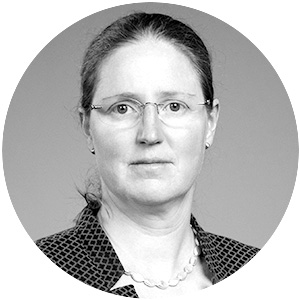The International Akademie Fresenius MIXTOX Conference will provide you with the opportunity to discuss current regulatory changes and risk assessment and management methods of chemical mixtures. Bringing together relevant regulaotry institutions, as well as stakeholders from industry and the research field, it will provide updates on crucial topics, such as implementing a mixture risk assessment, current EU projects and will be relevant to those working within the framework of the REACH Regulation and Regulation (EC) No 1107/2009 for Plant Protection.
Professionals working in the fields of:
Sectors that should take part:
Picture Credit: © Irochka - Fotolia.com
PLEASE NOTE: The indicated times refer to Central European Time CEST. For further time zones, please view here.
Stephanie Melching-Kollmuss, BASF/CropLife Europe Working Group on Cumulative Risk Assessment, Germany
Martin Wilks, Swiss Centre for Applied Human Toxicology, Switzerland
Finn Pedersen, European Commission, Belgium
Bruno Dujardin, European Food Safety Authority (EFSA), Italy
Nathalie Vallotton, Dow Europe, Switzerland
Esther de Jong, National Institute for Public Health and the Environment (RIVM), The Netherlands
Amélie Crépet, French Agency for Food, Environmental and Occupational Health & Safety (ANSES), France
Jacob van Klaveren, National Institute for Public Health and the Environment (RIVM), The Netherlands
Jelle Vlaanderen, Utrecht University, The Netherlands
Marc Kennedy, Fera Science, United Kingdom
Denise Bloch, Federal Institute for Risk Assessment (BfR), Germany
PLEASE NOTE: The indicated times refer to Central European Time CEST. For further time zones, please view here.
Stephanie Melching-Kollmuss, BASF/CropLife Europe Working Group on Cumulative Risk Assessment, Germany
Martin Wilks, Swiss Centre for Applied Human Toxicology, Switzerland
Olwenn Martin, University College London, United Kingdom
Mathilde Zorn, Board for the Authorisation of Plant Protection Products and Biocides (Ctgb), The Netherlands
Arnd Weyers, Bayer Crop Science, Germany
Gero Eck, Exponent International, Switzerland
Marion Junghans, Centre Ecotox, Switzerland
Name
Unternehmen
Denise Bloch
Federal Institute for Risk Assessment (BfR), Germany
Denise Bloch heads the Junior Research Group “New Approach Methodology (NAM)-based assessment of mixtures” at the German Federal Institute for Risk Assessment (BfR). Her research is focused on improving the human health risk assessment of mixtures by the application of alternatives to animal testing. In the past, she has worked as a regulator in the zonal authorisation of plant protection products at BfR (DE), conducted research on active transport inhibition at the Helmholtz Centre for Environmental Research in Leipzig (DE) and has studied biogeochemistry at ETH Zurich (CH).
mehrweniger
Amélie Crépet
French Agency for Food, Environmental and Occupational Health and Safety (ANSES), France
Amélie Crépet works for the French Competent Authority ANSES, where she coordinates experts groups on mixture and exposome. At the European level, Amélie coordinated work package or tasks in projects on mixture risk assessment (EUROMIX 2015-2019), on biomonitoring data (HBM4EU 2017-2021) and children chemical exposome (ATHLETE, 2020-2024). She participated actively to construct the PARC project (2021-2028), and she is co-leader of the task on integrative exposure and risk assessment. She was involved in the EFSA expert group on scientific criteria to group substances in mixtures and the one of WHO in 2019.
mehrweniger
Bruno Dujardin
European Food Safety Authority (EFSA), Italy
Bruno Dujardin is a senior scientific officer at the European Food Safety Authority (EFSA), where he has gained extensive experience in the regulatory risk assessment of chemicals. Recently, he took up a new role as team leader within the Methodology and Scientific Support unit. His team provides transversal support on exposure assessment, statistical data analysis and modelling. Within this capacity, Bruno is also responsible for steering the implementation of more holistic approaches that account for combined exposure to multiple chemicals.
mehrweniger
Gero Eck
Exponent International, Switzerland
Gero Eck is currently heading the European ecotoxicology team at Exponent International. In his previous roles as a regulatory ecotoxicologists he was working for industry and other consultants
mehrwenigerMarion Junghans
Centre Ecotox (Eawag), Switzerland
Marion Junghans is the Team Leader Risk Assessment at the Swiss Centre Ecotox. Her areas of expertise include the risk assessment for micropollutants in water, the prediction of mixture toxicity and OECD test methods in the fields of aquatic ecotoxicology, biological degradability and environmental behaviour, as well as risk communication.
mehrweniger
Marc Kennedy
Fera Science, United Kingdom
Marc Kennedy joined the Central Science Laboratory (now Fera Science Ltd) in 2006 and has worked primarily on probabilistic models for pesticide intakes from dietary and occupational routes. He has a PhD in statistics and has worked at the universities of Nottingham and Sheffield and the National Institute of Statistical Sciences. Marc has also contributed to risk modelling software BREAM, BREAM2, and BROWSE for bystanders, residents, operators, and workers exposure and developed aggregate exposure models in the EU ACROPOLIS and EUROMIX projects.
mehrwenigerOlwenn Martin
University College London, United Kingdom
Olwenn Martin is an Associate Professor in Health and Environment at University College London. She has an interdisciplinary background in chemistry, environmental sciences, environmental decision-making and development management. She was one of the earliest adopters of applying the principles of evidence-based medicine to environmental health and toxicology, including systematic review and meta-analysis and socio-economic analyses. She has specific interests in endocrine disruption and mixture effects.
mehrweniger
Stephanie Melching-Kollmuss
BASF, Germany
Stephanie Melching-Kollmuss has been working in the field of regulatory toxicology for chemicals and plant protection products for over 20 years, for more than 15 years at BASF SE. Her special interest is in mixture toxicity and endocrine disruption. Stephanie was involved in two Cefic LRI projects: “Combined low-dose exposures to anti-androgenic substances” and “Developing a quantitative AOP for liver-mediated thyroid modulation after prenatal exposure to a xenobiotic compound in the rat”.
mehrwenigerFinn Pedersen
European Commission, Belgium
Finn Pedersen is Seconded National Expert at the European Commission. He is currently working on the revision of REACH including the use of MAF in REACH. He has previously worked as Chief Advisor for chemicals policy activities, incl. REACH, CLP, biocides, cosmetics, nanomaterials, international conventions, OECD collaboration for the Danish Ministry of Environment and Food.
mehrweniger
Nathalie Vallotton
Dow Europe, Switzerland
Nathalie Vallotton is a Global Regulatory Environmental Science Manager at Dow Europe. She is member of the ECETOC task force on “Persistent chemicals and water resources protection” and is a member of the Cefic Persistence Issue Team.
mehrwenigerJelle Vllaanderen
Utrecht University, The Netherlands
Jelle Vlaanderen is an Associate Professor at the University of Utrecht, with a keen research interest in, epidemiology, including epidemiology of environmental and molecular epidemiology. He has previously held a position as postdoctoral fellow at IARC the International Agency for Research on Cancer.
mehrweniger
Arnd Weyers
Bayer Crop Science, Germany
Arnd Weyers is an Ecotoxicology Expert (terrestrial vertebrates) at Bayer CropScience with over 10 years of experience in this field. He has previously held positions as Head of Laboratory at Currenta and Head of the BUA-Office Ecotoxicology at Dresden University of Technology.
mehrweniger
Martin Wilks
Swiss Centre for Applied Human Toxicology, Switzerland
Martin Wilks is a Medical Toxicologist and risk assessment expert with more than 30 years of experience in academia, industry and the health service. He is Director of the Swiss Centre for Applied Human Toxicology (SCAHT) and Adjunct Professor at the University of Geneva and the University of Basel. He is a EUROTOX Registered Toxicologist, a Fellow of the Royal College of Physicians of Edinburgh, Secretary-General of EUROTOX and President-elect of the International Union of Toxicology (IUTOX).
mehrwenigerMathilde Zorn
Board for the Authorisation of Plant Protection Products and Biocides (Ctgb), The Netherlands
Mathilde Zorn is a member of the ecotoxicology team of the Dutch board for the authorization of Plant Protection Products and Biocides (CTGB). She has more than 15 years of experience in the ecotoxicological risk assessment of plant protection products with special interest in the areas of birds and mammals, soil organisms and combination/formulation toxicology.
mehrweniger
Esther de Jong
National Institute for Public Health and the Environment (RIVM), The Netherlands
Esther de Jong is a risk assessor and project manager at the Dutch National Institute for Public Health and the Environment (RIVM). She is a European Registered Toxicologist (ERT) who has been working in the field of plant protection products for over a decade.
mehrweniger
Jacob van Klaveren
National Institute for Public Health and the Environment (RIVM), The Netherlands
Jacob van Klaveren coordinated the European funded projects ACROPOLIS and EuroMix aiming to improve combined exposure to multiple chemicals in Europe. Since 2015, Jacob has been coordinating the EFSA-RIVM partnership on mixtures of pesticides. From January 2020 onwards he has been participating in the interim management board of the Horizon Europe Partnership for the Assessment of the Risk from Chemicals (PARC) and has been responsible for coordinating the work programme innovation in regulatory risk assessment.
mehrwenigerTeilnahmepreis: € 1.195,00 zzgl. MwSt.
Im Teilnahmepreis sind folgende Leistungen enthalten:
Vertreter:innen einer Behörde oder einer öffentlichen Hochschule erhalten einen ermäßigten Teilnahmepreis von € 695,00 zzgl. MwSt. (Nachweis per Fax oder E-Mail erforderlich). Der Sonderpreis ist nicht mit anderen Rabatten kombinierbar.
Gruppenrabatt
Bei gemeinsamer Anmeldung aus einem Unternehmen erhalten die dritte und jede weitere Person 15 % Rabatt.
Buchen ohne Risiko
Die Teilnahme an unseren Online-Veranstaltungen können Sie bis zu 1 Woche vor Veranstaltungsbeginn kostenfrei und ohne Angabe von Gründen schriftlich stornieren. Bei späteren Stornierungen sowie bei Nicht-Login zur Online-Veranstaltung können keine Teilnahmegebühren erstattet werden.
Sie erhalten jedoch in diesem Fall von uns nach der Veranstaltung Zugang zu den Dokumentationsunterlagen.
Eine Ersatzperson können Sie jederzeit kostenfrei benennen.

Anne Möller
Inhalt und Konzeption
+49 231 75896-84
amoeller@akademie-fresenius.de

Anne Möller
Inhalt und Konzeption
+49 231 75896-84
amoeller@akademie-fresenius.de

Anne Möller
Inhalt und Konzeption
+49 231 75896-84
amoeller@akademie-fresenius.de

Danielle Sörries
Organisation und Teilnehmermanagement
+49 231 75896-74
dsoerries@akademie-fresenius.de

Danielle Sörries
Organisation und Teilnehmermanagement
+49 231 75896-74
dsoerries@akademie-fresenius.de
Präsentieren Sie Ihr Unternehmen auf unserer Veranstaltung.
Persönlich und zielgruppengenau stellen Sie Ihre Produkte und Dienstleistungen vor. Gerne informieren wir Sie unverbindlich über die verschiedenen Möglichkeiten – von der Auslage von Produktinformationen bis hin zum Ausstellungsstand.
Gerne beraten wir Sie persönlich:

Monika Stratmann
Telefon: +49 231 75896-48
info@akademie-fresenius.de
Wir bieten Journalist:innen und Redakteur:innen eine Plattform, um in Kontakt mit Expert:innen zu treten.
Wenn Sie als Redakteur:in der Fachpresse Interesse an einem Pressepass oder einer Medienpartnerschaft haben, kontaktieren Sie uns bitte frühzeitig. Wir beraten Sie gerne.
Sprechen Sie uns an:

Katharina Geraridis
Telefon: +49 231 75896-67
presse@akademie-fresenius.de
© Die Akademie Fresenius GmbH